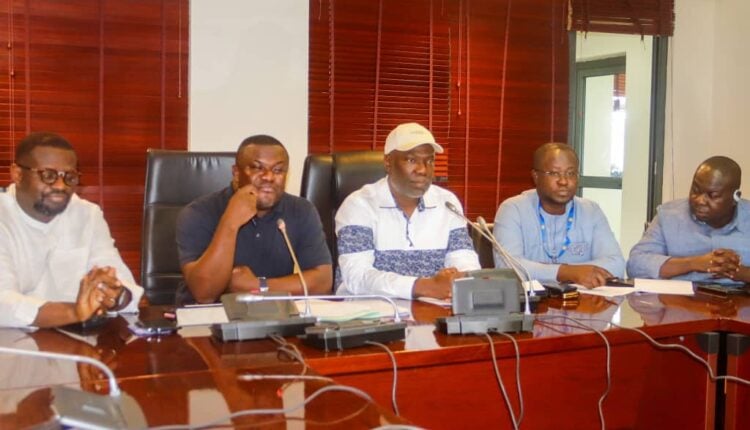The Minority in Parliament has outlined a seven-point proposal aimed at ending Ghana’s persistent power outages, commonly known as dumsor.
At a press conference on Monday, the Minority Caucus on the Energy Committee, led by its Ranking Member George Kwame Aboagye, called on the government to act decisively in resolving the ongoing energy crisis, which they say is crippling businesses and affecting livelihoods.
Their proposed interventions include:
Resolve fuel supply challenges facing Independent Power Producers (IPPs).
Renegotiate take-or-pay contracts with stakeholders to reduce financial burdens on the energy sector.
Set strategic Key Performance Indicators (KPIs) for the Electricity Company of Ghana (ECG) and Northern Electricity Distribution Company (NEDCo) to reduce operational and distribution losses and improve revenue collection.
Enforce the Cash Waterfall Mechanism, which governs how revenues from the electricity sector are distributed.
Diversify the energy mix by investing in renewable energy sources and optimizing local gas fields such as Jubilee and TEN to reduce reliance on fuel imports.
Encourage off-peak industrial consumption to help flatten energy demand curves.
Accelerate the nationwide rollout of smart meters to combat power theft and improve revenue mobilisation.
According to Mr Aboagye, these measures are critical given the worsening power situation in the country.
“We demand action and results from the Minister of Energy and the government,” Mr Aboagye declared. “It is time to stop the talking and put the lights on,” he added.
Past Achievements
The Minority also pointed to major achievements in the energy sector between 2017 and 2024 under the New Patriotic Party (NPP) government, to demonstrate their commitment to addressing Ghana’s power challenges.
They cited the addition of 1,600 megawatts (MW) of generation capacity through key projects such as Amandi, Early Power, Bui Solar, Kaleo/Lawra Solar, and the soon-to-be-completed Yendi Solar project. They also highlighted improvements in transmission infrastructure, including the 330kV Prestea-Kumasi line, the 225kV Burkina Faso Interconnection, and the Kasoa Bulk Supply Point. These investments, they said, have helped increase electricity access to 88.85 percent.
However, Mr Aboagye, who is also the Member of Parliament for Asene Manso Akroso, warned that the resurgence of dumsor threatens to erode these gains.
“The patience of the Ghanaian people is wearing thin. We demand action and results from the Minister of Energy and the government. It is time to stop talking and put the lights on,” the Asene Manso Akroso MP said.
The Minority also criticised recent statements made by the Energy Minister, accusing him of fearmongering.
Mr Aboagye cautioned Dr Jinapor to refrain from making “alarming and baseless” claims that could worsen the situation by creating public panic and undermining investor confidence.
They specifically challenged the Minister’s recent warning that Ghana had only 2.6 days’ worth of fuel left to power its thermal plants.
The caucus described such comments as economically damaging, particularly at a time when many businesses are still recovering from the global economic downturn and the impact of the COVID-19 pandemic.
They reiterated that reliable power is vital for industrial growth, and called on the Minister to focus on concrete solutions rather than fear-inducing rhetoric.


